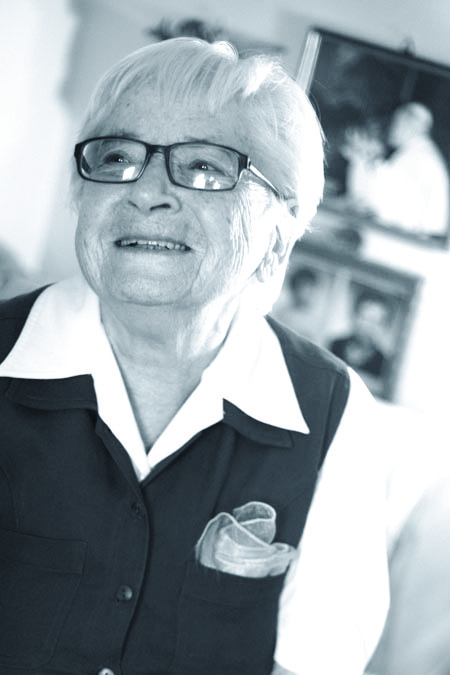
Photograph courtesy of its Author, Paulina Musiał, retrieved from popkulturalny.blog.polityka.pl/2009/10/23/natalia- rolleczek/ (this website is no longer available).
Natalia Rolleczek
Born in 1919 in Zakopane (a ski resort in the Polish Tatras). A novelist and playwright. In the 1930s, she lived several years in an orphanage run by Felician Sisters. During WW2 she was active in the anti-Nazi resistance in Kraków (Cracow). In 1950 she published a play Mój zięć marksista [My Marxist Son-in-Law]. In 1953 she described her pre-war orphanage experience in an autobiographical novel Drewniany różaniec [A Wooden Rosary], 1953, with its sequel Oblubienice [The Brides], 1955. Used by communists in their campaign against the Catholic Church, both books were widely promoted and made into a film in 1964; Rolleczek played her own character in the movie. A versatile author of books for children and adults, equally interested in the ancient and in the modern world. Since 1954, member of the Polish Writers’ Union. In 1980 she received an award from the Prime Minister for her books for children and youth.
Sources:
"Natalia Rolleczek", in Jadwiga Czachowska and Alicja Szałgan, eds., Współcześni polscy pisarze i badacze literatury. Słownik biobibliograficzny, vol. 7: R–S, Warszawa: Wydawnictwa Szkolne i Pedagogiczne, 2001, 63–64.
Katarzyna Bielas, "Liczę na czyściec" [Interview with the Author], Gazeta Wyborcza – Wysokie Obcasy, published December 18, 2009, archiwum.wyborcza.pl (accessed: January 22, 2021).
Katarzyna Bielas, "Natalia Rolleczek nie żyje. W Drewnianym różańcu opisała trudne dzieciństwo spędzone w sierocińcu prowadzonym przez zakonnice", wyskieobcasy.pl, published December 27, 2009 (accessed: January 22, 2021).
Bio prepared by Ilona Szewczyk, University of Warsaw, szewczyk@al.uw.edu.pl
Records in database:


